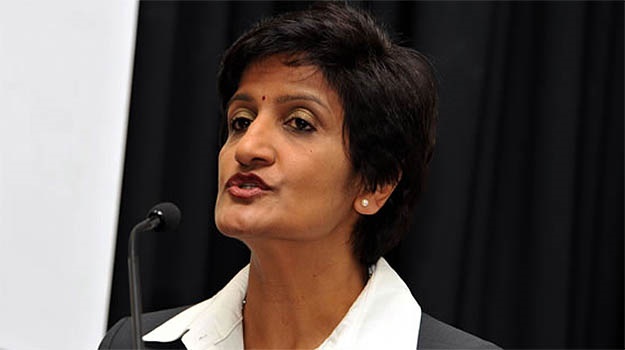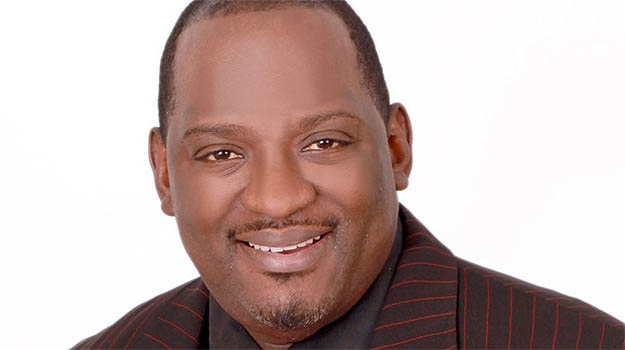Paying school fees in advance, finding a side hustle, formulating and sticking to a budget and joining an investment club. These are some of the successful savings habits that five of South Africa's top financial brains shared with Fin24 for National Savings Month.
Lesetja Kganyago, Governor of the South African Reserve Bank
Settle your debt
The aftermath of the East Asian crisis, which saw South Africa’s prime lending rate rising to a high of 24% in 1998, was a difficult time for many people, in particular those who were indebted. Today’s prime lending rate of 10% is 'nothing' compared to those days.
When the interest-rate cycle changed, I continued with the high instalment I was used to paying back in 1998. I settled my bond way faster than I would have done had I reduced the instalment in line with the revised interest rates. My advice would therefore be: settle your debt first. If you get more cash, like a bonus, the best thing you can do is to top up on your home loan or vehicle account finance.
School fees
If possible, pay your children’s school fees in advance. Some schools offer discounts of up to 10% if you pay your annual school fees upfront. Just imagine: if you had saved for school through an interest-bearing account, you would receive less than the 10% discount you get for paying your school fees upfront.
Budget, budget, budget
Formulate a budget. More importantly, stick to it. Don’t forget to budget for 'black tax', as it can leave you seriously out of pocket. Target to save 10% of your net salary. When prices go up, cut down on the non-essentials. Pay your credit card in full every month.
Prem Govendor, chairperson of the South African Savings Institute
Marry someone who shares your money beliefs
NEVER marry or enter into a relationship with someone who doesn’t have your values, beliefs and respect for money. If you are careful with money, a regular saver and particular about what you spend your money on, then it will make for an extremely difficult relationship if the person you are with is not. In practice I have seen so many unhappy people simply because they didn’t bother to check what kind of attitude to money and spending habits their partner has.
It is true that the only time such couples talk about money is when they are arguing! It worries me that couples planning their marriage will spend hours with a wedding planner for a once-off event, but will not consider having at least one session with a financial planner for a lifetime commitment. Remember when poverty comes through the door, love goes out the window, and by then it’s often too late to save the relationship, and all because the couple failed to talk about money before getting together.
Save before spending
From my personal experience, saving should always come before spending. If I wait to save after I have made my regular monthly payments, then there is always something that comes up that literally begs me to buy it! Then temptation sets in and I convince myself that just this once I will skip the regular saving and try and make it up; needless to say this doesn’t happen. So I find that by treating my fixed monthly savings like just another bill that has to be paid by the first of the month, then I am guaranteeing that I have saved for the month. In this way I am also paying myself first, like any other payment that needs to be made.
Use lists for shopping
NEVER shop for anything without a list, more particularly grocery or food shopping; and never make a list without going through your store cupboard or pantry and the fridge and freezer. By doing this, you will only shop for exactly what you need for the month, taking into account stuff that you already have that can be used in the month. This way you are not stocking up on perishable foodstuffs that you may have to toss out anyway because it’s passed its shelf life.
I find that with Durban’s humidity, dry foodstuffs like your grains and legumes have very limited shelf life, resulting in excess going to waste. I also find that planning one's meals ahead and then shopping also cuts down on wastage. This way you are buying exactly what you need and consuming it timeously. The money that you save by being organised will amaze you! It’s a given that the same basket of goods tend to cost a little more each month; if you are mindful, then you can easily see where the increase comes from and then take steps to control this.
The other advantage of planning your meals is that you avoid buying take out simply because you don’t know what to cook. On my way home from work I pass no less than 10 fast food outlets that can be very tempting especially if I have had a busy day and couldn’t stop at a store.
The same goes for clothes shopping. I find that if I look at my cupboards at the start of a season, determine what I need to take me through the season, then go out and get exactly what I need, then I am not tempted to buy unnecessarily. It also helps to know exactly what you need because then you target the sales for specific items and don’t end up buying a whole lot of junk that you may never wear!
Talking of junk, regardless of what people say, quality does matter. By being circumspect and buying good quality garments, the cost justifies itself in how long it lasts. There are some items you will wear year in and year out like boots, jackets, jerseys, scarves etc and if you buy good quality these can last you literally a lifetime. I have suits and jackets that I have bought more than 10 years ago that still look good, simply because I went for quality rather than quantity. It also acts as a very good incentive not to put on weight!
Tinyiko Ngwenya, economist, chartered accountant and investment professional
Set financial goals
Chart out your financial goals and add hard timelines to them. Once you can visualise your goals and put them in writing, giving up the pleasure of spending money now versus saving a bit more becomes a lot easier because you’re not just saving for the sake of saving but you’re saving for something real.
Automate savings
Automate your savings (minimum of 10% of your monthly salary) through a stop order so that you don’t find excuses to not save in a particular month. Having a stop order makes your savings consistent.
Be a bargain buyer
Get into the habit of being a bargain buyer. Knowing when not to buy at the initial offer price can save you a few rands that may go a long way.
Ayabonga Cawe, economist, MD of advisory firm Xesibe_Holdings and host of POWERBusiness
Find a side hustle
A side hustle is important: Cashflow is king, they say, and the more one's financial demands and obligations grow, the easier it is to find yourself in a tight spot. As part of self-improvement, find a side hustle that you enjoy and that is able to open up savings opportunities for you, alongside your main salary. It could be about turning a hobby into a small enterprise, or solving for a problem that you've identified and getting people to pay you for the convenience your solution provides. One income is never enough.
It's never too late to start
It’s never too early or too late to start: Start as early as possible, but even if you haven’t started yet, it’s never too late. Once you have started, exercise the discipline required and match your saving to a goal that has meaning for you. It could be a safe retirement, buying your first (or another) property or saving up for that long awaited trip. Discipline and 'starting' is so crucial!
Manage your debt
Don't spend it if you haven’t made it: Debt is the biggest brake on all of our financial dreams. If the debt is not for investing in something that can generate cash to pay off the obligation, but for consumption, don’t consider it. It may look appealing now, but you'll be stuck paying for it long after the impulse to consume or buy has gone. Remember, debt is consuming the money you haven’t earned yet.
Gerald Mwandiambira, Acting CEO of the SA Savings Institute, financial adviser and author of the book My Money: A financial planning guide for ordinary people
Automation is key
Automate your savings through a stop order or a retirement fund.
Save, then spend
Always save before you spend, first identify your saving goals and then spend based on what is left over.
Join a club
Savings and investment are a lifestyle; be around like-minded people, don’t do it in a corner on your own. Join a holiday club or stokvel.
* It's National Savings Month. Do you have a successful savings plan or story to tell? Share it with us now and help others to also become Savings Heroes. For more on savings, visit our special Savings Issue.
* Sign up to Fin24's top news in your inbox: SUBSCRIBE TO FIN24 NEWSLETTER



 Publications
Publications
 Partners
Partners
















